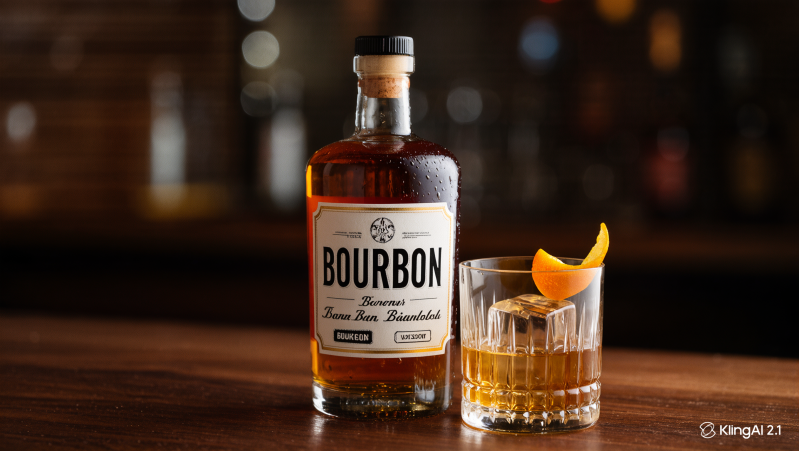Bourbon is an American whiskey with a mash bill containing at least 51% corn, giving it a naturally sweeter profile than rye whiskey. By law, it must be produced in the United States, distilled to no more than 160 proof (80% ABV), entered into new, charred oak barrels at no more than 125 proof (62.5% ABV), and bottled at a minimum of 80 proof (40% ABV). While not legally required, much of the world associates bourbon production with Kentucky.
The production process involves mashing the grains, fermenting, distilling, and aging in freshly charred oak barrels. These barrels caramelize the wood’s natural sugars, infusing the bourbon with notes of vanilla, caramel, and spice over time. Straight bourbon must be aged at least two years, though many premium bourbons are aged four to twelve years or more.
Bourbon typically ranges from 80–100 proof, though barrel-proof expressions can reach 120 proof or higher, offering intense flavor and strength. The high corn content results in a rich, smooth spirit with a full body.
Popular both neat and in cocktails, bourbon is the foundation for classics like the mint julep, whiskey sour, and boulevardier. Its approachable sweetness and complexity have made it one of the fastest-growing categories in the spirits world.
